Find Help
More Items From Ergsy search
-
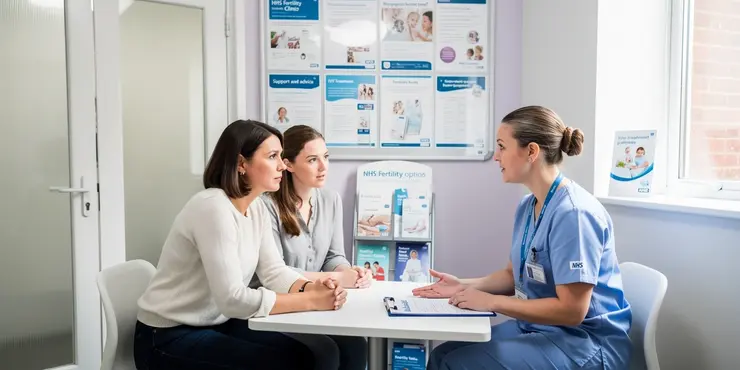
Fertility treatments on the up, but not via the NHS
Relevance: 100%
-

Is fertility affected by testicular cancer?
Relevance: 80%
-

IVF Fertility Treatment from MumsNet
Relevance: 79%
-
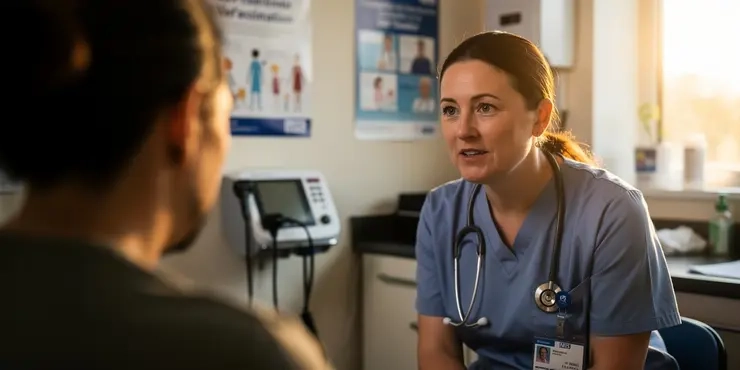
Does the COVID jab affect fertility?
Relevance: 68%
-

Infertility - IVF Treatment and Patient Information
Relevance: 50%
-

What should I expect during IVF treatment?
Relevance: 43%
-

How do clinics determine if IVF is the right option?
Relevance: 36%
-

Female infertility explained
Relevance: 35%
-

How to apply for NHS funding to treat infertility
Relevance: 35%
-
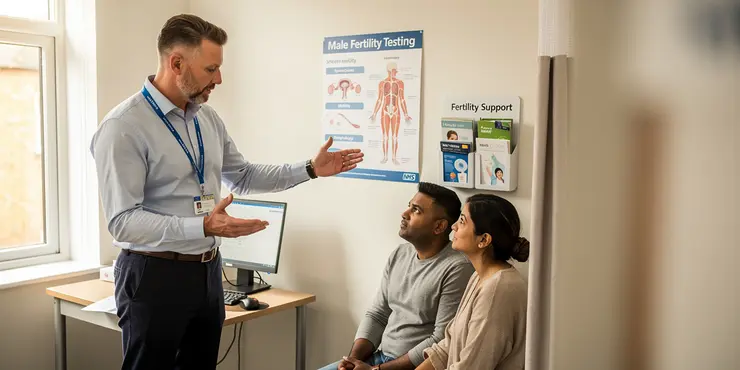
Ian Stones - Test him - Male Infertility
Relevance: 35%
-

Who might need IVF?
Relevance: 34%
-
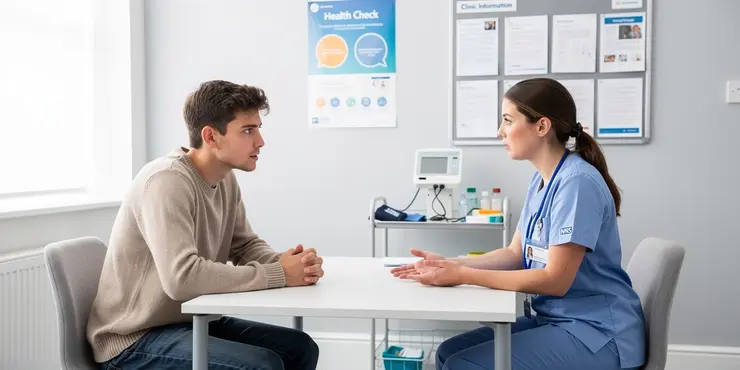
What types of treatments are available for testicular cancer?
Relevance: 34%
-
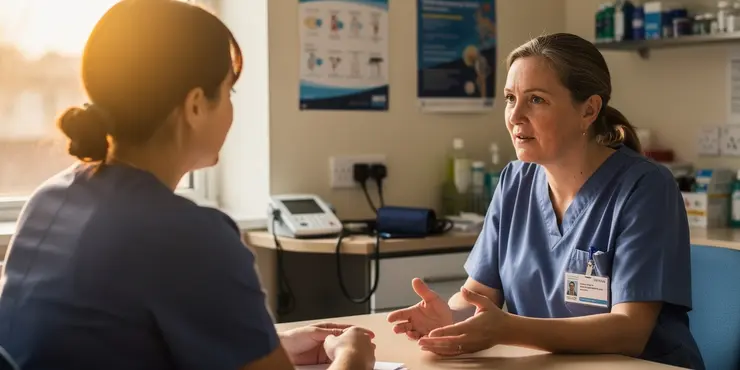
What are the side effects of bowel cancer treatment?
Relevance: 34%
-

Can testicular cancer recur after treatment?
Relevance: 34%
-

What are the reasons for female infertility?
Relevance: 33%
-
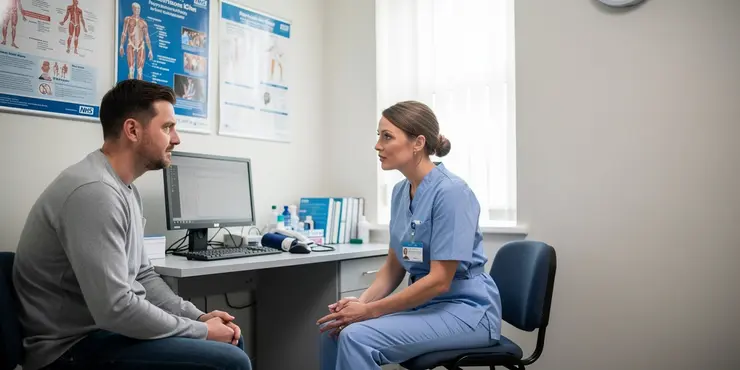
What are the reasons for male infertility?
Relevance: 32%
-
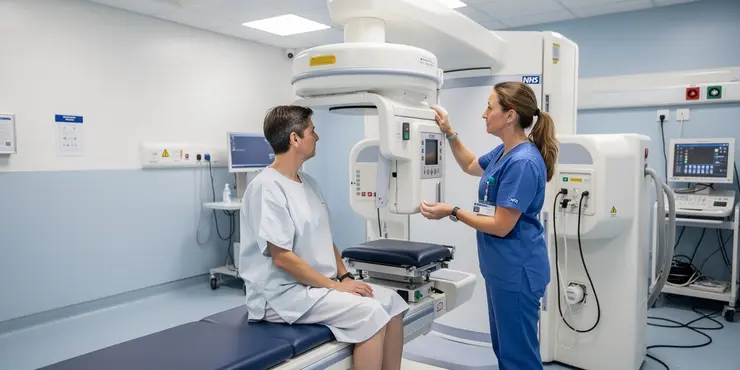
Cancer treatment: what happens during radiotherapy? | NHS
Relevance: 32%
-
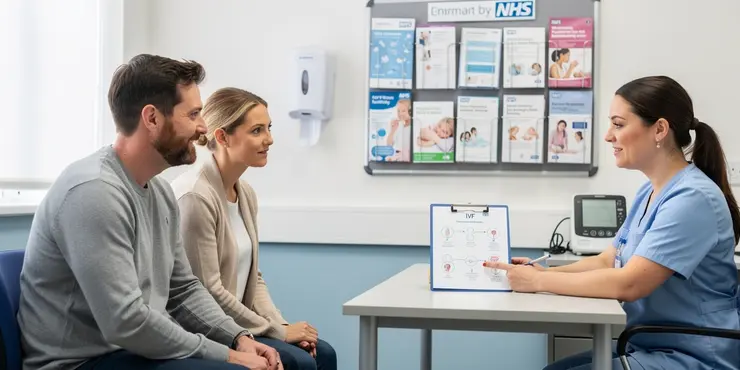
How does IVF work?
Relevance: 31%
-

Having chemotherapy and other treatments in the Day Treatment Unit
Relevance: 31%
-

Why is a womb lining test performed?
Relevance: 31%
-
Is there a treatment for measles?
Relevance: 30%
-
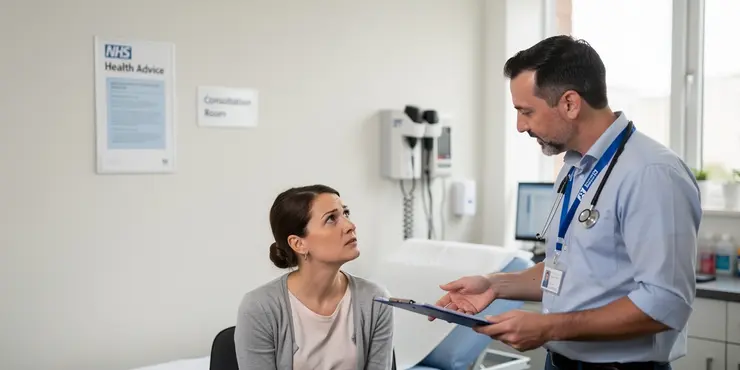
Can women use Abiraterone for treatment?
Relevance: 30%
-
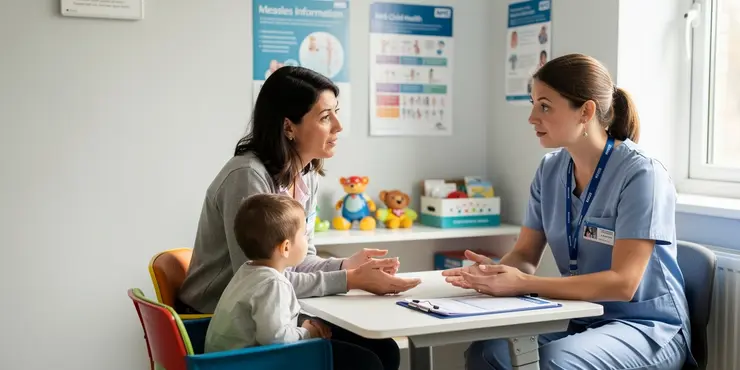
Is there a treatment for measles?
Relevance: 30%
-
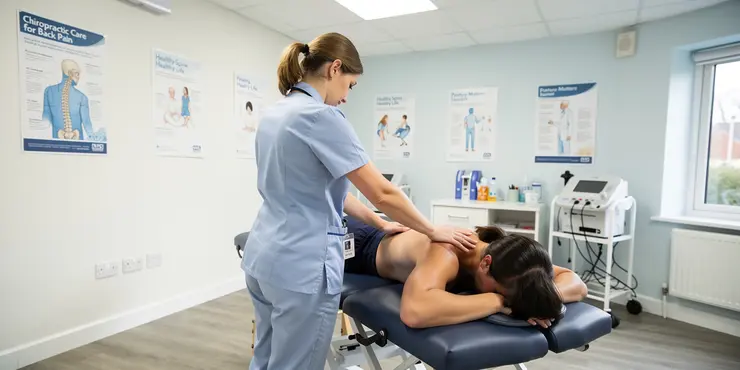
Are chiropractic treatments safe?
Relevance: 30%
-

Is Botox treatment expensive?
Relevance: 30%
-

Are chiropractic treatments painful?
Relevance: 30%
-

What is the treatment for appendicitis?
Relevance: 29%
-

Eating disorders: treatment
Relevance: 29%
-
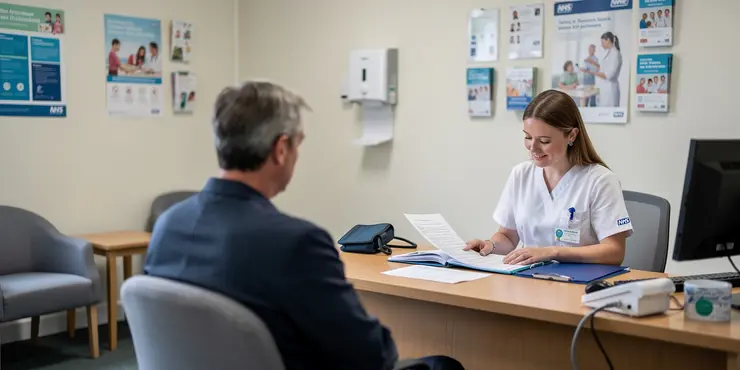
Is Paillon treatment a form of chemotherapy?
Relevance: 29%
-
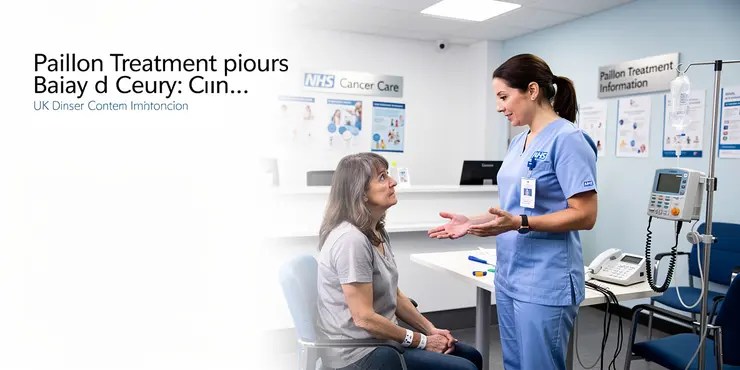
What is Paillon treatment for cancer?
Relevance: 29%
-

Who developed the Paillon treatment?
Relevance: 29%
-
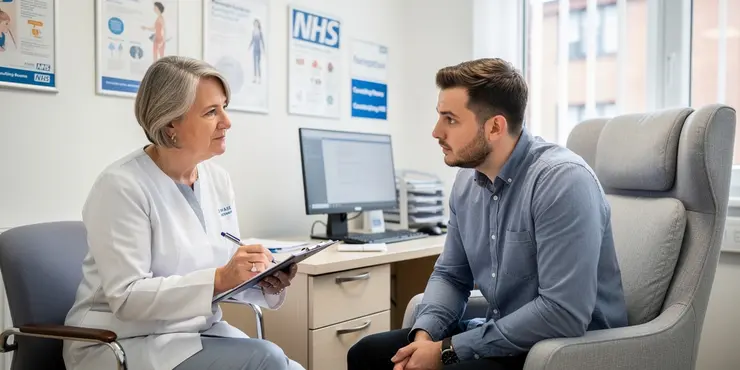
How is Paillon treatment administered?
Relevance: 29%
-

BSL - Treatments for insomnia
Relevance: 28%
-
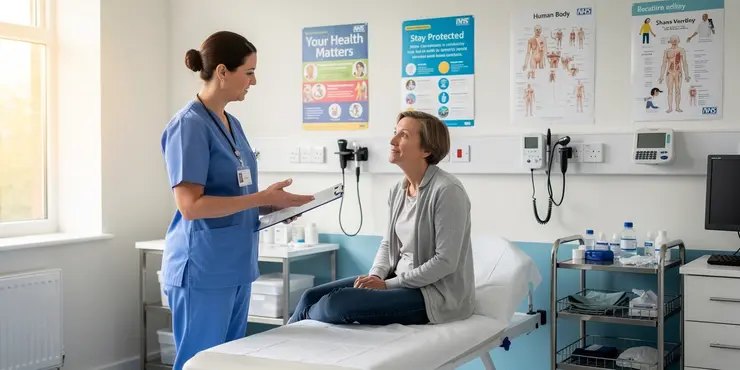
Is Paillon treatment FDA approved?
Relevance: 28%
-
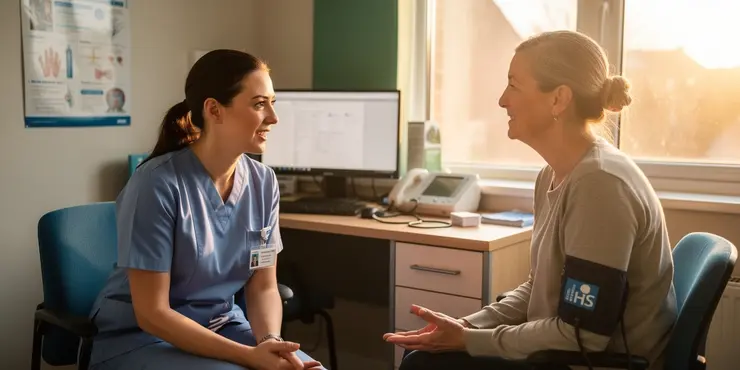
Is a prescription required for Paillon treatment?
Relevance: 28%
-

What are topical treatments for psoriasis?
Relevance: 28%
-
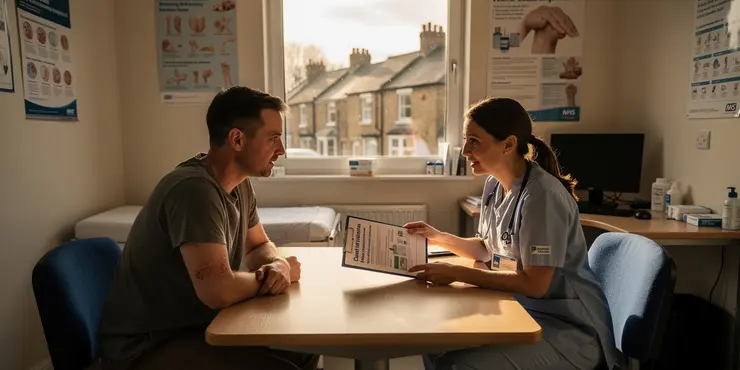
What treatments are available for eczema?
Relevance: 28%
-

Can medications affect pregnancy test results?
Relevance: 28%
-

Are homeopathic treatments covered by the NHS?
Relevance: 28%
-
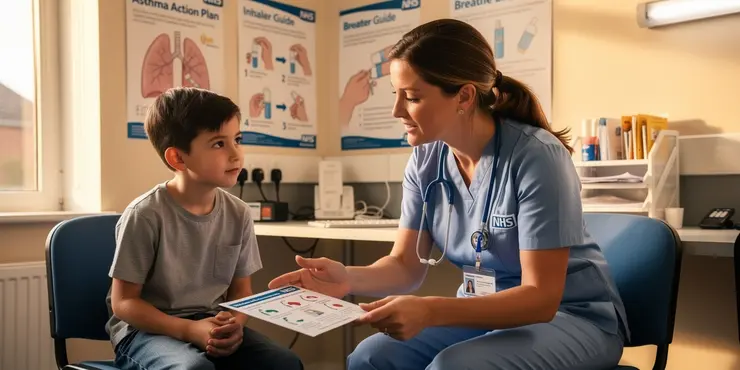
Are inhalers the only treatment for asthma?
Relevance: 28%
A report from Sky News on fertility treatments
More people than ever before are accessing fertility treatment in the UK, according to new figures, but more people than ever before are also paying for it. The Human Fertilisation & Embryology Authority (HFEA) says there was a 9% increase in the number of IVF cycles between 2019 and 2021.
Fertility Treatments on the Up, but Not via the NHS
Increasing Demand for Fertility Treatments
In recent years, there has been a significant rise in the demand for fertility treatments across the United Kingdom. Couples and individuals facing challenges in conceiving are turning to a variety of assisted reproductive technologies (ART) to help them achieve their dreams of parenthood. Procedures such as in vitro fertilisation (IVF), intrauterine insemination (IUI), and egg freezing have become more popular and widely discussed.
Limited Access through the NHS
Despite the increasing demand, access to fertility treatments through the National Health Service (NHS) remains limited. Budget constraints and varying commissioning guidelines across NHS Clinical Commissioning Groups (CCGs) mean that access to treatments can be highly inconsistent. While some regions may offer one or more cycles of IVF, others might offer none. As a result, many couples are finding themselves compelled to explore private options.
The Private Sector’s Role
With inconsistent NHS provision, the private sector has seen a significant uptick in patients seeking fertility solutions. Private clinics often offer a wider range of treatments, shorter waiting times, and more personalised care, albeit at higher costs. The expense of private fertility treatments, however, can be a substantial burden, potentially costing thousands of pounds per cycle, and may not be accessible to everyone.
Financial and Emotional Considerations
Opting for private fertility treatments involves both financial and emotional considerations. While private care can offer hope and a potentially higher success rate, the financial strain can be overwhelming. Additionally, the emotional rollercoaster associated with fertility treatments can be tough. Prospective parents are advised to seek comprehensive support, both emotional and financial, when considering their options.
Future of Fertility Treatment Access
There is ongoing debate about how to improve access to fertility treatments in the UK. Increased funding for NHS fertility services, standardising care provision across CCGs, and potential policy reforms are areas under consideration. Until systemic changes are implemented, individuals facing fertility challenges will continue to navigate the complex landscape between NHS limitations and private alternatives.
Sky News Report on Fertility Treatments
More people in the UK are using treatments to help have babies. New information shows this. But more people are also paying for these treatments. The Human Fertilisation & Embryology Authority (HFEA) says there were 9% more IVF treatments from 2019 to 2021.
Fertility Treatments Growing, but Not with NHS Help
More People Want Fertility Treatments
In the UK, more and more people are looking for fertility treatments. These treatments help people have babies when it's hard for them. People use things like IVF, IUI, and egg freezing to try and have children. These treatments are talked about a lot more now.
Little Help from the NHS
Even though many people want these treatments, the NHS doesn’t always provide them. Because of money and different rules, not everyone can get treatments from the NHS. Some places might give you some help, others might give none. So, many people look for help from private clinics.
Private Clinics Help More
Because the NHS doesn't always help, private clinics have more people asking for help. These clinics give more treatment options, faster service, and special care. But, it costs a lot of money. Some people might not have enough money to pay for this treatment.
Think About Money and Feelings
Choosing private treatments can be hard on your wallet and your feelings. Private clinics might give you hope, but they cost a lot. Also, the journey of trying to have a baby can be very emotional. It’s a good idea to get support from friends, family, or groups that can help.
What’s Next for Fertility Treatments?
People are talking about how to make fertility treatments better in the UK. They are thinking about giving more money to NHS services, making rules the same everywhere, and maybe changing some laws. For now, those looking to have a baby need to make choices between the NHS and private care.
Frequently Asked Questions
What are the common types of fertility treatments?
Common types of fertility treatments include In Vitro Fertilisation (IVF), Intrauterine Insemination (IUI), fertility medications, and surgery to correct structural problems in reproductive organs.
Why is there an increase in fertility treatments?
There has been an increase in fertility treatments due to delayed childbearing, advances in medical technology, and higher awareness of fertility issues.
Are fertility treatments covered by the NHS?
While some fertility treatments are available through the NHS, many people experience long waiting lists, and access can be limited based on certain eligibility criteria, driving many to seek private options.
What are the eligibility criteria for NHS-funded fertility treatments?
Eligibility for NHS-funded fertility treatments may depend on factors such as age, previous children, Body Mass Index (BMI), and length of time trying to conceive.
How much do private fertility treatments cost in the UK?
The cost for private fertility treatments can vary, with IVF treatments typically costing between £5,000 and £10,000 per cycle, plus additional fees for medications and other necessary procedures.
What is In Vitro Fertilisation (IVF)?
IVF is a procedure where eggs are collected from the ovaries and fertilised with sperm in a lab. The fertilised eggs are then transferred to the uterus with the hope of achieving pregnancy.
Can lifestyle changes improve fertility?
Yes, lifestyle changes such as maintaining a healthy weight, eating a balanced diet, reducing alcohol and caffeine intake, and avoiding smoking can improve fertility.
What is Intrauterine Insemination (IUI)?
IUI involves placing sperm directly into the uterus around the time of ovulation to facilitate fertilisation. It is less invasive and cheaper than IVF.
Are fertility treatments successful?
The success rates of fertility treatments vary depending on many factors including age, underlying health conditions, and the specific type of treatment used. IVF, for example, has varying success rates based on these factors.
What are the potential risks of fertility treatments?
Risks can include multiple pregnancies, ovarian hyperstimulation syndrome (OHSS), ectopic pregnancy, and emotional and financial stress.
Do men need fertility treatments too?
Yes, male infertility can be addressed with treatments such as surgical sperm retrieval, sperm washing and IUI, and Intracytoplasmic Sperm Injection (ICSI) during IVF.
How long is the wait for NHS-funded fertility treatments?
Waiting times can vary by region and circumstances. Some patients may wait several months or even years for NHS-funded fertility treatments due to high demand.
What financial support is available for private fertility treatments?
Some clinics offer payment plans, loans, or discount packages. Patients might also consider employer benefits or seek personal loans to cover costs.
How can I find a reputable fertility clinic?
Look for clinics registered with the Human Fertilisation and Embryology Authority (HFEA), check success rates, read reviews, and consider recommendations from healthcare professionals.
What emotional support is available during fertility treatment?
Many clinics offer counselling services, and support groups are available through charities and online communities. Emotional support is crucial given the potential stress and emotional strain of fertility treatments.
What are some common treatments to help people have babies?
Here are some treatments that can help people have babies:
- Medicine: Doctors can give special medicine to help women have babies.
- IVF (In-Vitro Fertilization): Doctors take eggs from a woman and mix them with a man's sperm in a lab. Then, they put the eggs back in the woman's body.
- Insemination: A doctor puts sperm directly into a woman's body to help her have a baby.
- Surgery: Doctors can do an operation if there are problems stopping a woman from having a baby.
If reading is hard, you can ask someone to read with you. You can also use a text-to-speech tool to listen to words being read aloud.
There are different ways to help people have babies. Some common ways include:
- IVF: This is when doctors take eggs and sperm and help them join together outside the body. Then, they put the tiny baby back into the body.
- IUI: Doctors put sperm directly into the uterus to help start a baby.
- Fertility Medicines: These are special pills or shots that help bodies make more eggs or sperm.
- Surgery: Doctors might do an operation to fix the body parts that help with making babies.
If you need help reading or understanding information, you can use audio books or ask someone to explain things. Remember, it's okay to ask questions if you don't understand.
Why are more people using fertility treatments?
Many people are choosing to have babies later in life. Sometimes, it's harder to get pregnant as you get older.
More people know about fertility treatments now. These treatments can help someone have a baby if they are having trouble.
Sometimes health problems can make it hard to have a baby. Doctors can help find the best treatment.
If you're finding it hard to read this, don't worry! You can ask someone to read it to you or use an app that reads words aloud.
More people are using treatments to help have babies. This is because:
- People are having babies later in life.
- Doctors have new and better ways to help people have babies.
- More people know about problems having babies and how to get help.
Some tools and techniques that can help with this topic are talking to a doctor or finding groups of people with the same problems for support.
Can you get help to have a baby from the NHS?
Some people can get help to have a baby from the NHS, but there can be long waiting times. Also, not everyone is allowed to use these services. That's why some people choose to pay for private options.
Who can get NHS help to have a baby?
You might get help to have a baby from the NHS. They will look at things like:
- How old you are.
- If you have other children.
- Your Body Mass Index (BMI) - this is a number they use to check if you are a healthy weight.
- How long you have been trying to have a baby.
If you find it hard to read, you can ask someone to help you understand. There are also apps that can read text out loud for you.
How much does it cost to have a private baby treatment in the UK?
Having a baby can be done with help, and it sometimes costs money. This is called private baby treatment. In the UK, the price can be different.
Here is a simple way to think about it:
- Talk to a doctor who helps with babies.
- They will tell you what you might need to pay for.
- The cost can be a lot and it’s good to plan for it.
Some tools and tips that can help you:
- Ask someone to help you understand.
- Use a calculator to manage money.
- Write down questions to ask the doctor.
Having a baby with help can cost a lot of money. If you need IVF to help you have a baby, it can cost between £5,000 and £10,000 for each try. You might need to pay more for medicines and other things too.
What is IVF?
IVF helps people have a baby.
Doctors take eggs from a woman and mix them with a man’s sperm.
This happens in a lab.
If the egg and sperm join, it makes an embryo.
The embryo goes back into the woman's body to grow into a baby.
Tools and Tips:
- Use pictures to help understand.
- Ask a friend or family member to explain if you need help.
IVF is a medical treatment to help people have babies. Doctors take eggs from a woman's body and mix them with sperm in a special lab. After that, they put the fertilized eggs back into the woman's body, hoping she will get pregnant.
Can changing how you live help you have a baby?
Sometimes, changing your daily habits can help if you want to have a baby. Here are some simple things you can try:
- Eat Healthy: Try to eat fruits, vegetables, and other good foods. They help your body stay strong.
- Exercise: Move your body. It can be a fun activity like walking or dancing. Exercise helps your body work well.
- Sleep Well: Rest is very important. Try to get enough sleep each night so you feel good each day.
- Don’t Smoke or Drink Too Much: Smoking and drinking too much alcohol can make it harder to have a baby. Try to avoid these.
- Stay Happy and Calm: Feeling good inside can help too. Try things like drawing, listening to music, or taking deep breaths if you feel worried.
Tools that can help:
- Reminder Apps: Use your phone to remind you to eat or exercise at good times.
- Support Groups: Talk with friends or join groups to share how you feel.
These changes can make a difference. Always talk to a doctor if you have questions or need more help.
Yes, making changes to how you live can help you have a baby. Keeping a healthy weight, eating good food, drinking less alcohol and caffeine, and not smoking can make it easier to get pregnant.
What is IUI?
IUI stands for Intrauterine Insemination. It's a way to help people have a baby. A doctor puts sperm directly into a woman's womb. This makes it easier for the sperm to reach the egg and start a baby.
If you need help reading, you can use:
- Text-to-Speech: A tool that reads words out loud.
- Visual Aids: Pictures that show what IUI is.
IUI is a medical treatment to help people have babies. It puts sperm into the womb when a woman’s body releases an egg. This helps the egg and sperm come together. It is simpler and costs less money than IVF.
Do fertility treatments work well?
Sometimes, people need help to have a baby. This help is called fertility treatment. It can work for some people, but not always for everyone.
Here are some things to know:
- Success rates can be different, depending on the person's age and health.
- Different treatments help in different ways. Doctors can explain what might work best for you.
- It's important to be patient. Sometimes it takes more than one try.
Talk to a doctor to learn more about your options. It can also help to use a notebook to keep track of your appointments and questions.
How well fertility treatments work can be different for each person. This depends on things like how old you are, if you have any health problems, and the type of treatment you use. For example, IVF might work better for some people than others because of these things.
Here are some things that can help:
- Talk to your doctor about what might work best for you.
- Learn more about different treatments.
- Ask for support from family and friends.
- Use apps or tools that explain treatments in simple words.
What are the possible risks of fertility treatments?
Fertility treatments help people have babies. But there can be some risks or problems. Here’s what to know: - **Side Effects:** Some treatments can cause headaches, mood changes, or feeling tired. - **Multiple Births:** Sometimes, treatments make it more likely to have twins or triplets, which can be harder for the mom and babies. - **Health Issues:** There might be a higher chance of some health problems for both mom and baby. If you or someone you know is thinking about fertility treatments, you can: - Talk to a doctor or a nurse to ask questions. - Write down any worries you have to discuss. - Use tools like videos or pictures to help understand the treatments. These can help you to learn more and feel better prepared.There are some things to be careful about. You might have more than one baby. Your ovaries could get too big and make you feel unwell. A baby might grow in the wrong place, like in a tube instead of the womb. This can also make you feel stressed or worried, and it might cost a lot of money.
To help, you can use big print and clear pictures. It can also be good to talk to someone you trust or a doctor to understand better and feel supported.
Do men need help to have babies too?
Sometimes, men need help to have babies. Men can see a special doctor who can help them. This doctor can do tests to find out why it's hard to have a baby.
Here are some things that can help:
- Go to a doctor for a check-up.
- Eat healthy foods and exercise.
- Stop smoking and drinking alcohol.
- Try to relax and not worry too much.
Remember, there are people who can help. Tell the doctor if you have questions.
Yes, sometimes men have trouble having babies. Doctors can help with special treatments. They might use surgery to get sperm, wash sperm to make it better, or put sperm directly into a woman's body. They can also use something called ICSI when they help make a baby in a lab, which is called IVF.
How long do you wait for free NHS help to have a baby?
If you want NHS help to have a baby, you might have to wait. The NHS helps people for free, but many people need their help.
The wait time can be different in each area. Some people wait a short time, and others wait longer. Your doctor or nurse can tell you how long you might wait.
To find out more, you can ask for someone to help you understand it better. A family member, friend, or someone at a support group can help you.
You can also use simple online tools that can help explain things more clearly. These tools can show you easy words and pictures to help you understand.
How long you wait can be different depending on where you live and your situation. Some people might have to wait a long time, like many months or even years, to get fertility treatment that the NHS pays for because lots of people want it.
Here are some tips to help:
- Ask your doctor for updates about your wait time.
- Look for support groups where you can talk to others in the same situation.
- Use a calendar to track dates and appointments.
Help with Money for Private Fertility Treatments
Some places where you get medical care can help you pay. They might let you pay a little at a time, give you a loan, or offer discounts. People can also check if their job offers help with medical costs or use a personal loan to pay.
How can I find a good clinic to help me have a baby?
Here is how you can find a good place to help you:
- Ask people you trust, like family or friends, if they know a good clinic.
- Visit clinic websites to see what they offer.
- Read reviews online to see what other people say about the clinic.
- Call the clinic and ask questions. You can ask about their success rates and how they help people.
- You can also ask your doctor to recommend a good clinic.
You can do these things to find a clinic that can help you.
Find clinics that are signed up with the Human Fertilisation and Embryology Authority (HFEA). Check how often they help people have a baby. Read what other people say about them and ask doctors for advice.
What help can you get for your feelings during fertility treatment?
Fertility treatment can make you feel lots of emotions. It's important to get help with these feelings.
Here are some ways to get help:
- Talk to a counselor: You can talk to a counselor about how you feel. They listen and help you understand your feelings better.
- Join a support group: In a support group, you can meet other people going through the same thing. You all share your feelings and support each other.
- Friends and family: Talk to the people you trust. They can offer hugs and support when you need it.
- Relaxation: Try relaxing activities like taking deep breaths, listening to calm music, or drawing.
Remember, it's okay to ask for help. You are not alone in this journey.
Lots of clinics have people you can talk to like counselors. There are also groups that meet to support each other. You can find these groups through charities or on the internet.
Having someone to talk to about feelings is very important because going through fertility treatment can be hard and stressful.
Useful Links
This website offers general information and is not a substitute for professional advice.
Always seek guidance from qualified professionals.
If you have any medical concerns or need urgent help, contact a healthcare professional or emergency services immediately.
Some of this content was generated with AI assistance. We’ve done our best to keep it accurate, helpful, and human-friendly.
- Ergsy carfully checks the information in the videos we provide here.
- Videos shown by Youtube after a video has completed, have NOT been reviewed by ERGSY.
- To view, click the arrow in centre of video.
- Most of the videos you find here will have subtitles and/or closed captions available.
- You may need to turn these on, and choose your preferred language.
- Go to the video you'd like to watch.
- If closed captions (CC) are available, settings will be visible on the bottom right of the video player.
- To turn on Captions, click settings .
- To turn off Captions, click settings again.
More Items From Ergsy search
-

Fertility treatments on the up, but not via the NHS
Relevance: 100%
-

Is fertility affected by testicular cancer?
Relevance: 80%
-

IVF Fertility Treatment from MumsNet
Relevance: 79%
-

Does the COVID jab affect fertility?
Relevance: 68%
-

Infertility - IVF Treatment and Patient Information
Relevance: 50%
-

What should I expect during IVF treatment?
Relevance: 43%
-

How do clinics determine if IVF is the right option?
Relevance: 36%
-

Female infertility explained
Relevance: 35%
-

How to apply for NHS funding to treat infertility
Relevance: 35%
-

Ian Stones - Test him - Male Infertility
Relevance: 35%
-

Who might need IVF?
Relevance: 34%
-

What types of treatments are available for testicular cancer?
Relevance: 34%
-

What are the side effects of bowel cancer treatment?
Relevance: 34%
-

Can testicular cancer recur after treatment?
Relevance: 34%
-

What are the reasons for female infertility?
Relevance: 33%
-

What are the reasons for male infertility?
Relevance: 32%
-

Cancer treatment: what happens during radiotherapy? | NHS
Relevance: 32%
-

How does IVF work?
Relevance: 31%
-

Having chemotherapy and other treatments in the Day Treatment Unit
Relevance: 31%
-

Why is a womb lining test performed?
Relevance: 31%
-
Is there a treatment for measles?
Relevance: 30%
-

Can women use Abiraterone for treatment?
Relevance: 30%
-

Is there a treatment for measles?
Relevance: 30%
-

Are chiropractic treatments safe?
Relevance: 30%
-

Is Botox treatment expensive?
Relevance: 30%
-

Are chiropractic treatments painful?
Relevance: 30%
-

What is the treatment for appendicitis?
Relevance: 29%
-

Eating disorders: treatment
Relevance: 29%
-

Is Paillon treatment a form of chemotherapy?
Relevance: 29%
-

What is Paillon treatment for cancer?
Relevance: 29%
-

Who developed the Paillon treatment?
Relevance: 29%
-

How is Paillon treatment administered?
Relevance: 29%
-

BSL - Treatments for insomnia
Relevance: 28%
-

Is Paillon treatment FDA approved?
Relevance: 28%
-

Is a prescription required for Paillon treatment?
Relevance: 28%
-

What are topical treatments for psoriasis?
Relevance: 28%
-

What treatments are available for eczema?
Relevance: 28%
-

Can medications affect pregnancy test results?
Relevance: 28%
-

Are homeopathic treatments covered by the NHS?
Relevance: 28%
-

Are inhalers the only treatment for asthma?
Relevance: 28%


